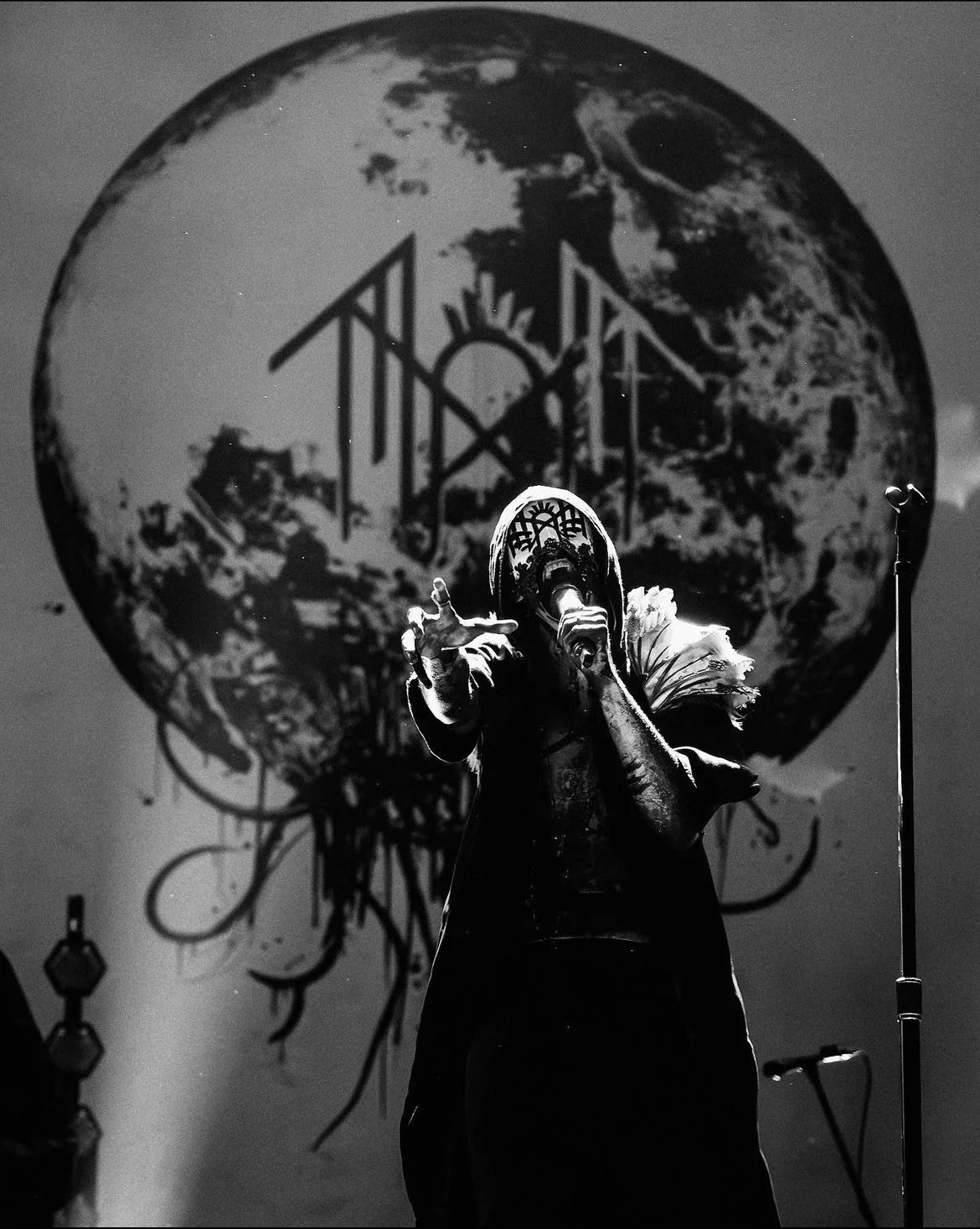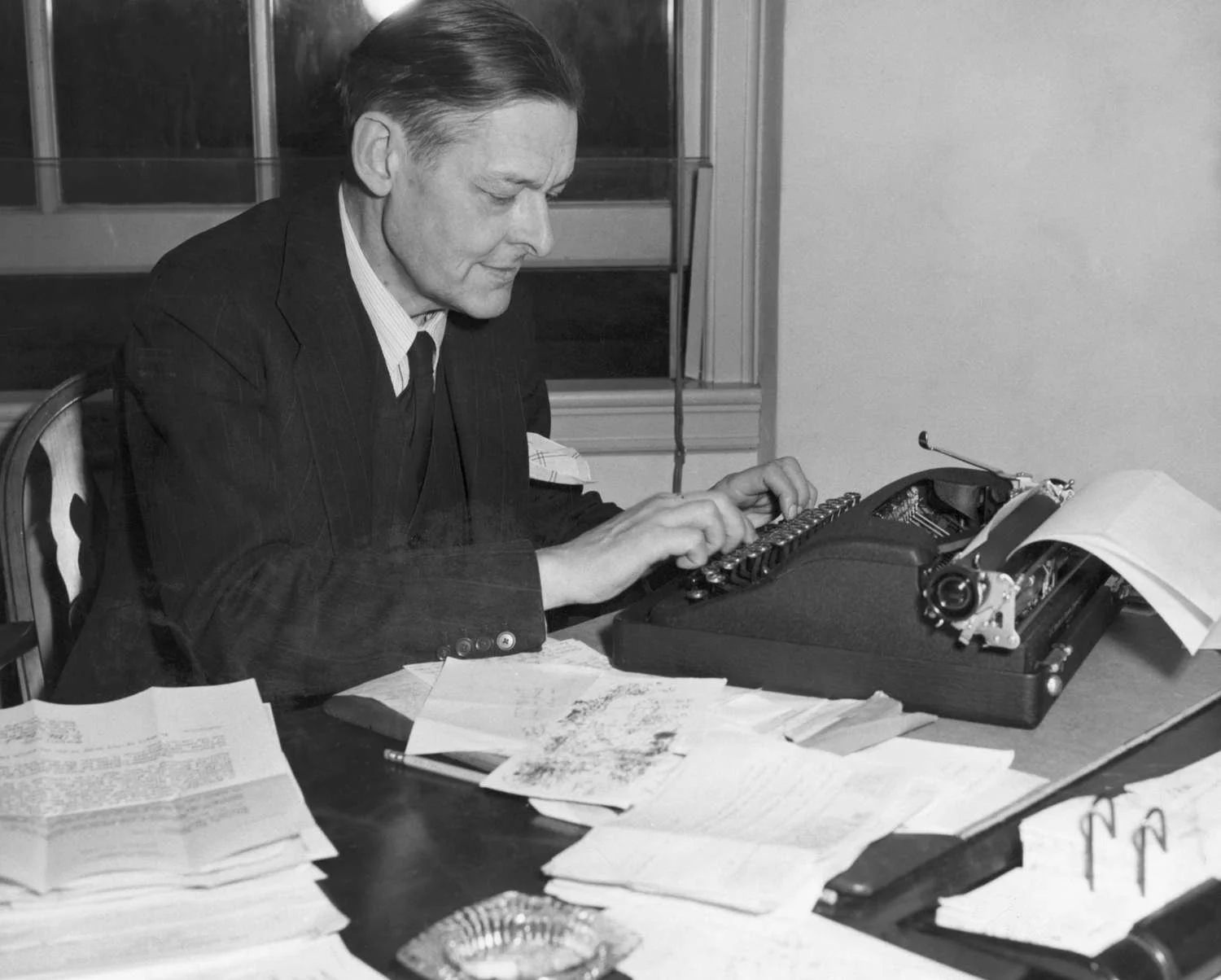T.S. Eliot - The Emotional Blueprint

“This is the way the world ends
Not with a bang but a whimper.”
– T.S. Eliot, The Hollow Men
If you really want to understand the emotional and spiritual spiral that Sleep Token drags you through—start with T.S. Eliot.
Most fans clock "The Waste Land" references in This Place Will Become Your Tomb and call it a day.
But it’s so much deeper than that.
Because Vessel isn’t just writing heartbreak songs.
He’s building a narrative that echoes the spiritual ruin and rebirth found in Eliot’s most devastating work.
T.S. Eliot (1888–1965) was a pioneering poet, essayist, and playwright whose work profoundly shaped 20th-century literature. Born in the United States and later a British citizen, Eliot is best known for his complex, allusion-rich poetry that explores themes of spirituality, time, and modern disillusionment. His major works—including The Waste Land, Ash Wednesday, and Four Quartets—combine classical tradition with modernist innovation, reflecting his deep engagement with philosophy, religion, and culture.

1. The Waste Land = Emotional Destruction
Eliot’s "The Waste Land" is about emotional collapse.
It’s filled with drowning, desolate imagery, spiritual drought, and longing for something divine that never quite arrives.
Sound familiar?
Now listen to the song Atlantic:
“So flood me like Atlantic / Weather me to nothing / Wash away the blood on my hands…”
It’s the exact same surrender.
The same ache for cleansing, even if it kills him.
The water isn’t saving Vessel, It’s entombing him.
Just like the line in Eliot:
“Fear death by water.”
He’s not being reborn yet. He’s still drowning.
The Waste Land (1922) is T.S. Eliot’s landmark modernist poem, portraying a spiritual and cultural crisis in the aftermath of World War I. Fragmented in form and rich in mythic and religious allusions, it depicts a world drained of meaning—a barren landscape echoing the soul’s desolation.
Drawing from sources like the Grail legend, Eastern philosophy, and sacred texts, Eliot weaves a vision of collapse and yearning, where renewal is possible only through inner transformation. In the ruins, a faint voice still prays for rain.

2. Ash-Wednesday = Guilt and Hesitation
Eliot’s Ash-Wednesday is a spiritual poem written in the voice of someone who wants to believe—but doesn’t trust they’re worthy of redemption.
“Because I do not hope to turn again…”
Vessel’s lyrics mirror that uncertainty.
He wants transformation (Kali) and healing (Eden), but he still carries guilt, shame, trauma.
He’s not asking for salvation. He’s asking if he deserves to even try.
Ash Wednesday (1930) marks T.S. Eliot’s spiritual turning point, written after his conversion to Anglicanism. The poem expresses the struggle of renouncing the world in search of divine grace, blending Christian imagery with personal longing.
Through fragmented prayer and symbolic language, Eliot charts a journey through spiritual desolation toward the faint hope of renewal—where silence, suffering, and faith intertwine in the soul’s quiet ascent.

3. Four Quartets = Peace Through Fire
In Four Quartets, Eliot finally finds peace—but only after years of spiritual fragmentation.
He accepts time, loss, silence.
“In my end is my beginning.”
And isn’t that the arc of Even in Arcadia?
The 'Man behind the mask' isn’t perfect.
But he’s still here.
And there’s power in that.
Four Quartets (1943) is T.S. Eliot’s final and most spiritual work—a poetic meditation on time, eternity, and the soul’s journey toward redemption. Comprising four interconnected poems, it explores the stillness at the heart of motion, the wisdom found in suffering, and the sacred hidden within the ordinary.
Blending Christian mysticism, philosophy, and personal reflection, Eliot guides the reader through cycles of death and renewal, war and silence, arriving at the revelation that true understanding lies beyond words, where time and the eternal meet.
Why It Matters:
Because The man behind the mask isn’t telling a love story.
He’s telling a spiritual one.
And T.S. Eliot’s poetry is the emotional architecture behind it.
This isn’t the hero’s journey.
It’s the collapse.
The guilt.
The drowning.
The silence.
The tiny, trembling choice to live anyway.
Sleep Token doesn’t give you answers.
But like Eliot, they hold your hand through the wreckage.
And that’s why it matters.





